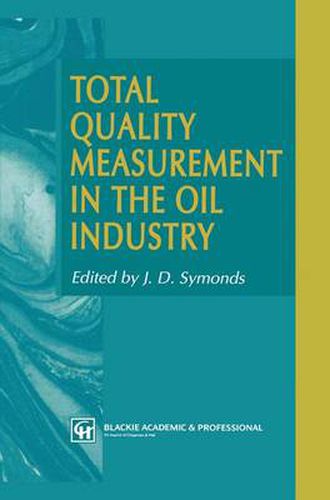Readings Newsletter
Become a Readings Member to make your shopping experience even easier.
Sign in or sign up for free!
You’re not far away from qualifying for FREE standard shipping within Australia
You’ve qualified for FREE standard shipping within Australia
The cart is loading…






This title is printed to order. This book may have been self-published. If so, we cannot guarantee the quality of the content. In the main most books will have gone through the editing process however some may not. We therefore suggest that you be aware of this before ordering this book. If in doubt check either the author or publisher’s details as we are unable to accept any returns unless they are faulty. Please contact us if you have any questions.
1 Oxford and Webster’s dictionaries ,2 give trans-Atlantic agreement in English with a common definition for ‘Quality’ as ‘degree of excellence’. Compared with the many words taken up by other authors’ definitions, this is remarkably brief and no doubt unsatisfactory to many people. Yet if ‘degree’ means a stage in an ascending or descending series, in intensity or in amount, then measurement is by definition explicitly required if terms such as ‘quality level’, ‘good quality’, ‘high quality’ etc. are to have any real meaning. Using measurement is inherent in the methods of all the major writers on the achievement of business improvement through quality. Results from measurements allow improvement by using tools commonly grouped under the heading Statistical Process Control (SPC). Results also form part of the judging criteria of Total Quality Management (TQM) models such as the Malcolm Baldrige National Quality Award in the USA and the more recent European Quality Award. Future revisions of the ISO 9000 series of quality management system standards will specifically require measure ment of defects. However, it is not easy for quality professionals or line managers to find examples of what they should measure and how to do it in their own particular functions in their own particular industries; case st}dies always seem to refer to others.
$9.00 standard shipping within Australia
FREE standard shipping within Australia for orders over $100.00
Express & International shipping calculated at checkout
This title is printed to order. This book may have been self-published. If so, we cannot guarantee the quality of the content. In the main most books will have gone through the editing process however some may not. We therefore suggest that you be aware of this before ordering this book. If in doubt check either the author or publisher’s details as we are unable to accept any returns unless they are faulty. Please contact us if you have any questions.
1 Oxford and Webster’s dictionaries ,2 give trans-Atlantic agreement in English with a common definition for ‘Quality’ as ‘degree of excellence’. Compared with the many words taken up by other authors’ definitions, this is remarkably brief and no doubt unsatisfactory to many people. Yet if ‘degree’ means a stage in an ascending or descending series, in intensity or in amount, then measurement is by definition explicitly required if terms such as ‘quality level’, ‘good quality’, ‘high quality’ etc. are to have any real meaning. Using measurement is inherent in the methods of all the major writers on the achievement of business improvement through quality. Results from measurements allow improvement by using tools commonly grouped under the heading Statistical Process Control (SPC). Results also form part of the judging criteria of Total Quality Management (TQM) models such as the Malcolm Baldrige National Quality Award in the USA and the more recent European Quality Award. Future revisions of the ISO 9000 series of quality management system standards will specifically require measure ment of defects. However, it is not easy for quality professionals or line managers to find examples of what they should measure and how to do it in their own particular functions in their own particular industries; case st}dies always seem to refer to others.